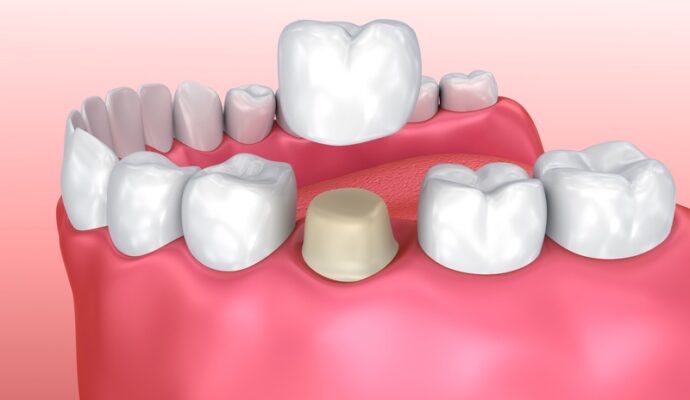When grappling with addiction, deciding on the type of treatment to pursue can be a critical turning point in one’s journey to recovery. Among the options available, inpatient drug rehab is often recommended for its intensive care and structured environment. But who exactly should consider this type of treatment? In this comprehensive discussion, we’ll explore the scenarios and individuals for whom inpatient drug rehab may be the most beneficial.
What is Inpatient Drug Rehab?
Inpatient drug rehab, often referred to as residential treatment, requires patients to live at a facility while undergoing intensive treatment. Programs can vary in length but typically range from 30 to 90 days, depending on individual needs. These facilities provide a 24-hour care and support system, including medical supervision, counseling, and therapy, in a supportive, substance-free environment.
1. Individuals with Severe Addiction
One of the primary considerations for choosing inpatient treatment is the severity of an addiction. Individuals who have been using drugs heavily or those who have been addicted for a long period generally require more intensive intervention. Inpatient rehab provides these individuals with the constant medical care and supervision they need to ensure safety and support during the withdrawal and detox processes.
Depending on the substance involved, the nature of detoxification can vary. Facilities like a Benzo detox center in Southern California specialize in offering medically supervised detox and treatment tailored to the complex nature of benzodiazepine dependence.
2. Those Who Have Relapsed
Recovery is a journey, and relapse can be a part of this journey for many. For those who have experienced one or more relapses, inpatient rehab offers a focused environment that aims to strengthen one’s ability to avoid future relapses. This setting is beneficial for those needing to break the cycle and significantly change their environment and daily routines.
3. People Lacking a Supportive Home Environment
The home environment plays a critical role in the recovery process. Those living in a chaotic or unsupportive atmosphere, or where other household members may still be using substances, can find it particularly challenging to maintain sobriety. In such cases, removing oneself from toxic surroundings and choosing an inpatient facility can prove invaluable.
Importance of Environmental Control
Inpatient facilities offer a controlled environment free from the usual triggers that might lead to substance use. This change in environment can make a significant difference in one’s recovery process, offering a safe space to heal and build healthier habits.
4. Individuals Seeking Structured Schedules
The structured nature of inpatient programs helps many individuals thrive. These programs often include a balanced schedule of therapy sessions, group meetings, physical activities, and wellness education. For those who need a routine to help manage their recovery, the regimented schedule of an inpatient program can provide necessary order and predictability.
5. Individuals with Co-existing Mental Health Issues
Many times, substance abuse disorders coincide with mental health issues such as depression, anxiety, or bipolar disorder. Inpatient drug rehab facilities often have the resources to address these dual diagnoses comprehensively. Treatment in such facilities typically includes psychiatric care alongside addiction treatment, providing a holistic approach to recovery.
Specialized Detox Processes
Opiate addiction requires a carefully managed detox process. As part of the recovery journey, engaging in a specialized opiate detox program can help manage the severe withdrawal symptoms effectively. If you are seeking to start this critical phase of recovery, it’s essential to learn more here about the available options that cater specifically to opiate detoxification.
Exploring Options
For nearby residents or for those willing to travel for rehab, exploring an inpatient drug rehab California can provide multiple benefits. These facilities are equipped to handle a variety of addiction types with a comprehensive and holistic approach to treatment.
Deciding If Inpatient Rehab Is Right for You
To determine if inpatient rehab is the best choice for you or your loved one, consider the level of addiction, the presence of co-existing mental health conditions, the need for a stable environment, and the necessity for a structured routine. Consulting with a healthcare provider can also provide you with tailored advice and options based on your specific situation.
Common Concerns and Considerations
-
Cost of Treatment: Inpatient rehab can be more expensive than outpatient options due to the comprehensive care and accommodation provided.
-
Commitment to Stay: Consider whether you can commit to a residential stay, as the typical program length can vary from one to three months.
-
Family and Work Commitments: Balancing significant life responsibilities can be challenging, but many facilities offer programs that help integrate these aspects.
Final Thoughts
Choosing the right path in recovery is a critical decision that influences the success of one’s journey to sobriety. Inpatient drug rehab offers numerous benefits and is suitable for those looking for intensive treatment and a supportive environment. By understanding the specific requirements and considerations of inpatient treatment, individuals can make informed decisions about engaging in a program that best suits their needs. Remember, taking the first step toward recovery is often the most crucial, and finding the right help can significantly ease this process.




